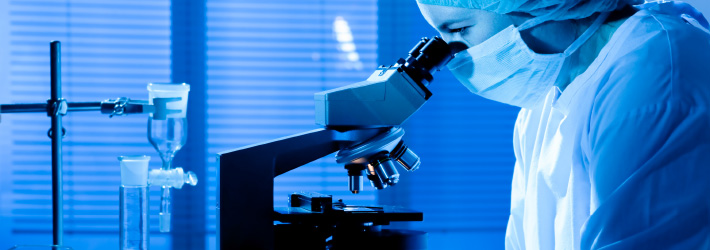There has been a flurry of activity relating to proposed EYLEA® (aflibercept) biosimilars in November, starting with a BPCIA litigation against Celltrion’s proposed biosimilar CT-P42 filed on November 8, 2023, Case No. 1:23-cv-00089 (N.D.W.Va.) (see BPCIA Litigation Related to Proposed EYLEA® Biosimilar CT-P42 Filed). This was the second BPCIA litigation filed by Regeneron related to a proposed EYLEA® biosimilar, coming over a year after the case relating to Biocon’s M710 aflibercept biosimilar (see Case No. 1:22-cv-00061 (N.D.W.Va.), pending).
SB15 (aflibercept) – Samsung Bioepis
On November 17, 2023, the PTAB granted institution of Samsung Bioepis’s IPR2023-00884, challenging Regeneron’s U.S. Patent No. 11,253,572 directed at “Use of VEGF antagonist to treat angiogenesis eye disorders.” The granted petition included challenges to method of treatment claims as anticipated and obvious over the prior art.
This is the fourth of five IPR petitions filed by Samsung Bioepis against Regeneron to be instituted by the PTAB (see IPR2023-00442, IPR2023-00566, IPR2023-00739). The remaining IPR petition filed in August, IPR2023-01312, is awaiting an institution decision and a decision on Samsung Bioepis’s motion for joinder with Celltrion’s IPR2023-00462.
Samsung Bioepis is developing SB15 as a proposed biosimilar of EYLEA®. While to our knowledge there has not been a public announcement of an aBLA filing with the FDA, the filing is likely to have happened at some time prior to Regeneron’s November 21, 2023 filing of its BPCIA litigation against Samsung Bioepis, Case No. 1:23-cv-00094 (N.D.W.Va.).
While much of the Complaint is redacted, as filed it alleges infringement of 37 of Regeneron’s patents. The majority of asserted patents claim manufacturing methods (21 patents), including methods of making biological products (19 patents), methods of detecting biological contaminants (1 patent), and systems for producing biological products (1 patent); eight of the asserted patents claim methods of treatment, seven patents claim formulations, and one asserted patent includes both formulation and method of treatment claims. Regeneron also alleges that Samsung Bioepis has imported or directed one or more of its subsidiaries, affiliates, or agents to import shipments of SB15 into the United States.
M710 (Yesafili®) (aflibercept) – Biocon Biologics / Mylan / Viatris
On November 20, 2023, Biocon Biologics petitioned Regeneron’s U.S. Patent No. 10,888,601 (’601 patent) directed to “Use of VEGF antagonist to treat angiogenesis eye disorders” in IPR2024-00201, seeking cancellation of method of treatment claims as obvious. Biocon requested joinder with Samsung Bioepis’s IPR2023-00739 (“Samsung IPR”), which was instituted on October 20, 2023.
Biocon currently has a pending aBLA for its proposed EYLEA® biosimilar, M710 (called Yesafili® in Europe). Its aBLA was the first to be accepted by the FDA, in October 2021.
Biocon is also involved in a pending BPCIA litigation with Regeneron related to M710, Case No. 1:22-cv-00061 (N.D.W.Va.), filed in August 2022. The ’601 patent challenged in this IPR is among the 24 patents asserted against Biocon in that litigation.
This is the sixth IPR filed against Regeneron by Mylan / Biocon, all challenging method of treatment patents (see IPR2021-00880 and IPR2021-00881: Final written decisions finding all challenged claims unpatentable; IPR2022-01225 and IPR2022-01226: Instituted, pending; and IPR2023-00099: Institution denied due to disclaimer of all challenged claims).
FYB203 (aflibercept) – Formycon
On November 29, 2023, Regeneron filed a BPCIA litigation (Case No. 1-23-cv-00097 (N.D.W.Va.)) against Formycon alleging infringement of 39 patents by FYB203, Formycon’s proposed biosimilar of EYLEA®. Formycon publicly announced on June 29, 2023 that it had filed an aBLA with FDA for FYB203, which was accepted by the FDA on August 29, 2023. It was the second aBLA announced for an EYLEA® biosimilar, followed by Celltrion’s CT-P42 proposed aflibercept biosimilar the following day. The Formycon litigation is the fourth BPCIA case filed by Regeneron related to a proposed biosimilar of EYLEA®.
In its Complaint, Regeneron alleges infringement of 40 patents, 34 of which are also asserted in the 1-23-cv-00094 (N.D.W.Va.) pending case, and include 21 patents that claim manufacturing methods, eight patents that claim methods of treatment, seven patents that claim formulations, and one patent claiming both formulations and methods of treatment. Five of the manufacturing patents in this case are asserted for the first time in a BPCIA litigation, including two patents claiming cells used to make biological products, one patent claiming the plasmid used to make the biological product, one patent claiming formulations, and one patent claiming methods used in manufacturing biological products.
To date, Formycon has not filed any IPRs directed to EYLEA® patents.
EYLEA®‘s U.S. sales were reported to be about $6.26 billion in 2022.
We continue to monitor these cases closely and will provide updates once available.
For more information about these and other biosimilar patent disputes, visit BiologicsHQ.
_____________________________________________________
The authors would like to thank April Breyer Menon for her contributions to this article.


